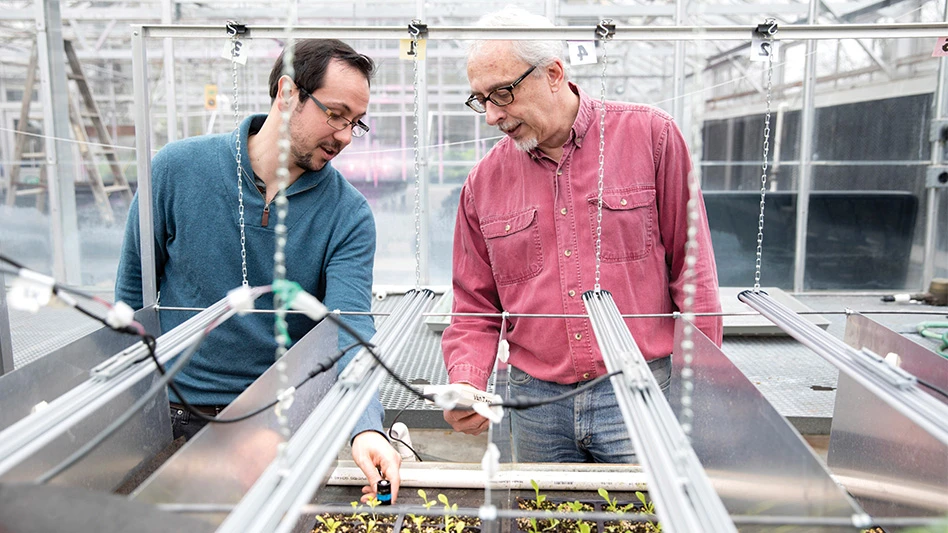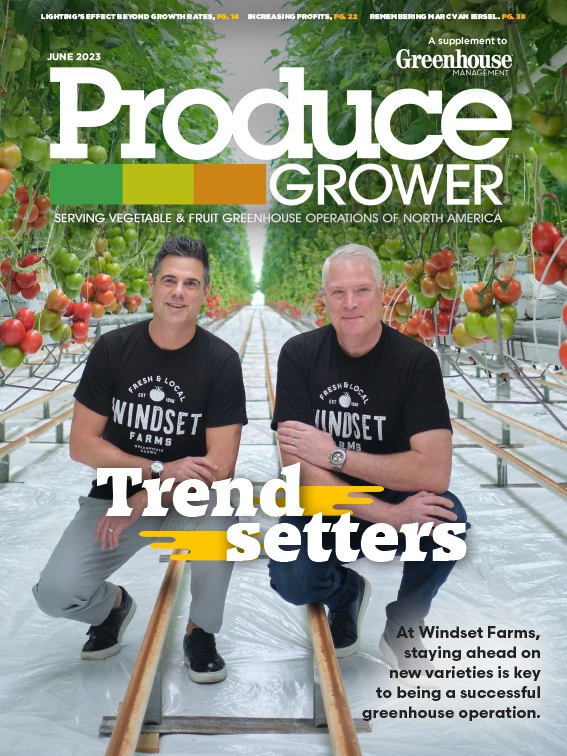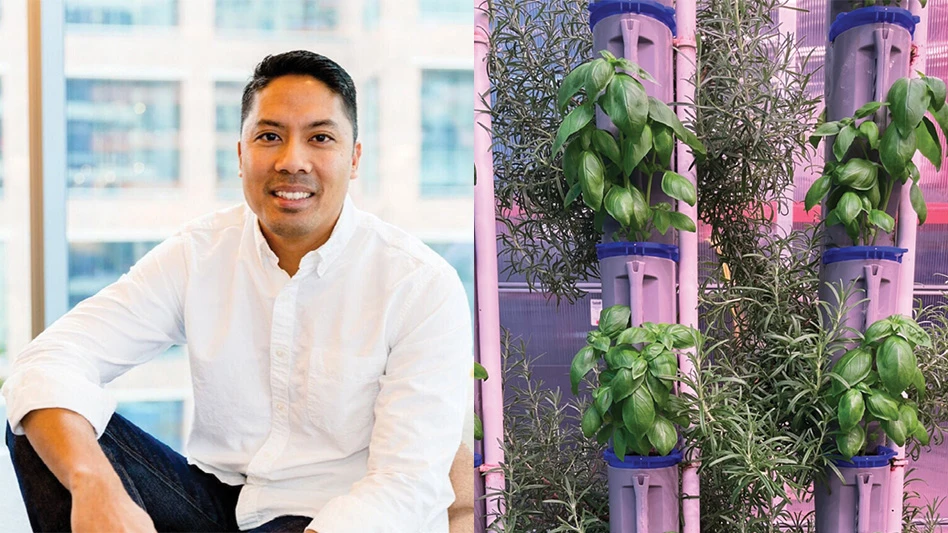
Marc van Iersel, one of the leading researchers in horticulture, died on April 20 after a battle with prostate cancer. He was 57.
van Iersel is survived by his wife, Lynne Seymour, as well as extended family. When he passed, Seymour and friend/former student, Claudia Elkins, were by van Iersel’s side. He donated his body to Cornell University so it could be studied for cancer research.
“He was a scientist until the end,” says Neil Mattson, a Cornell University professor and researcher. “He gave his life, including his whole body, to science.”
After growing up in Roermond, the Netherlands, van Iersel emigrated to the United States in 1990 for graduate school at the University of Arkansas. He earned his PhD in agronomy and spent a year at Utah State University as a postdoctoral research fellow.
From 1995 until his death, van Iersel was a researcher and professor at the University of Georgia. In 2017, he was appointed as the Vincent J. Dooley professor for horticulture. There, he taught and mentored numerous students who would go on to work in the green industries or embark on research careers of their own.
“He could be an excellent researcher without ever forgetting his role as an educator and being a great mentor for graduate students,” says Leonardo Lombardini, the head of the department of horticulture at UGA. “And also, very dedicated to the wellbeing of the entire department.”
“Marc showed us so much about scientific methodology, how to do things and why,” says Erico Mattos, a former student at UGA who later collaborated with van Iersel on several projects. “He always took the time to sit with you and explain concepts so you could come to conclusions.”
“He was one of the most thoughtful and encouraging people,” Mattson says. “He just loved sitting back over coffee or beer or tea and learning about what everyone around the table was up to. For new faculty and graduate students, he really worked to nurture them. He could have just ignored us, but he really wanted to get to know people.”
van Iersel was known to host international students and colleagues at his house for Thanksgiving.
“It was also really important for him being international himself,” Lombardini says. Lombardini, his wife and kids attended van Iersel’s Thanksgiving every year after Lombardini came to UGA in 2019. van Iersel, in fact, was one of the people who recruited Lombardini to UGA.
van Iersel was a champion of sustainable growing practices. He did extensive work with smart irrigation systems for greenhouse and nursery growers that led to reduced water usage. He developed biofeedback systems that measure soil moisture. In the system, optical sensors were used to control the water and light provided to plants in greenhouses and vertical farms automatically.
“He not only focused on research, but how that research would have an impact on commercial horticulture,” says Chris Higgins, president of Hort Americas. “He handled himself like everyone should.”
“Marc listened to what growers had to say,” Mattos says. “He made sure we solved the problems they actually had through scientific process.”
In recent years, he spent much of his time working on greenhouse LED lighting systems that use carbon dioxide sensors, light sensors, moisture sensors and other data collection tools to control artificial light in a greenhouse. In his career, he wrote more than 150 research papers and articles with one goal in mind: to help growers grow better plants. He also led Project LAMP, a group that focused on identifying the optimal light intensity and spectrum for the profitable production of crops in greenhouses and plant factories.
“He was one of those rare horticulturalists who was into using cutting-edge research techniques — especially sensing techniques — to understand what was happening to the plant,” says Mattson, who worked with van Iersel on Project LAMP. “He saw that LEDs, beyond their energy efficiency capabilities, brought precision control capabilities in terms of dimmability or which spectra to use.”
One of his most known accomplishments was working on an online electricity cost calculator for supplemental lighting. The calculator is based on actual greenhouse conditions to give growers an accurate estimate of their costs. He was also part of a team working to understand how far-red light impacts plant physiology.
“You have to have people in your industry doing work where there’s not a direct relationship to profit,” Higgins says. “There has to be people who advocate for your industry that have the means to test, trial and prove out new concepts where there’s not a direct correlation to profit.”
In his honor, UGA has started the Marc van Iersel Exploratory Travel Award. It will provide funding to expose graduate students to research programs outside UGA through short-term visits to other universities, government research labs, private companies, or similar research facilities and centers. (gail.uga.edu/commit and search for 79176003) Utah State's Dr. Bruce Bugbee, van Iersel's friend, colleague and former doctoral advisor, has started the Marc van Iersel Student Travel Fund to help graduate students travel to NCERA-101 national meetings. (marcvanierselfund.org The American Floral Endowment has also established a memorial tribute. (endowment.networkforgood.com and select "memorial")
In 2017, van Iersel co-founded Candidus, a company whose mission is to develop “cost-effective supplemental lighting strategies and control systems for commercial greenhouse operations.” He created the company with Mattos, the company’s CEO. At Candidus, oversaw the development of advanced lighting controllers.
“All the people he trained will continue his work,” Mattos says.
“He believed in science,” Lombardini says.

Explore the June 2023 Issue
Check out more from this issue and find your next story to read.
Latest from Produce Grower
- Eurazeo Planetary Boundaries Fund acquires Bioline AgroSciences
- Consumer Curiosity Report explores food, nutrition opinions from 'early adopters'
- Your comprehensive guide to Indoor Ag-Con ’25
- Sollum Technologies and Indoor Ag-Con announce recipients of Sollum Student Scholarship
- 80 Acres Farms expands to Georgia, Texas and Colorado
- This fast and agile robotic insect could someday aid in mechanical pollination
- AmericanHort urges exclusion of sphagnum peat moss from proposed Canadian tariff
- The Growth Industry Episode 2: Emily Showalter on how Willoway Nurseries transformed its business





